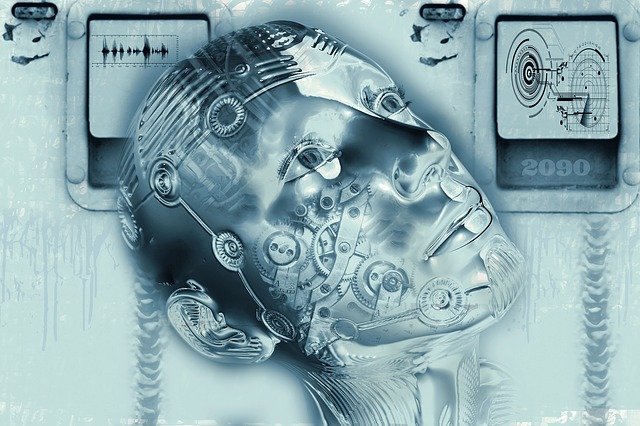 Robots
Robots
In my continuing educational series on how to explain technology advances to your Mom I present an update on robotics. 😊
Let’s start with the most important question, why do you care?
You care about robots because a) there is a convergence of market forces that is producing a big need for robotic automation and b) There is a convergence of technologies that is enabling robots to do things they could never do before.
You care because as these two forces converge you are going to see a massive adoption of robotic automation over the next few years into activities and services that will directly affect you.
First the market forces.
Most obvious to you will be the fact that there is a lot of manual labor everywhere. People still do a lot of things that they really don’t want to. Business pays people to do things that aren’t really value added. This create a pressure on business to automate.
This is the demand side of the convergence. Economic pressure to automate. Robots will allow the reduction or elimination of wasted time.
Ironically the new ecommerce world increases the need for human intervention, while at the same time increasing the economic pressure to automate. With eCommerce companies are pushed to deliver products customized specifically to a customer, in small quantities, with very rapid response time.
I.e. I get a pair of jeans specifically tailored to my size and I want them tomorrow.
How do we manage that? Without automation the only way to manage it is to have more humans involved. With robotic automation we can get that fast, specific, low volume service without ballooning our direct labor cost.
I’m sure you’ve all seen the dire warnings about driver shortages and warehouse labor shortages and all other flavors of labor shortages across industries. You’ve also seen government policy actions to drive up base pay rates. All these economic forces create fertile ground for robots.
Remember, robots don’t sleep, they don’t ask for a raise and they don’t’ get sick.
So why don’t companies just go ahead and automate everything? Good question.
The answer is the other side of the convergence, the supply side. Up until fairly recently the automation was very expensive and not very smart.
Let’s take a simple task in a warehouse. You are asked to walk out into the warehouse, reach into a box, grab an item and put it in in a tote.
Simple right?
Not really. How do we know where to go to get the box? How do we locate that particular box on the shelf? How do we reach in and grab the right item, pull it out and put it in a tote? Think about all the processing and mechanical movements involved.
What happens if the box has moved by 4 inches to the left of where we thought it was? What’s the difference between picking up a tube of toothpaste and a fuzzy bunny?
Up until recently robots could only do simply X, Y and Z coordinate things. Any variation from that couldn’t be handled.
What’s changed?
Vision systems have been improving in capability and coming down in cost at an exponential rate. A vision system is a fancy camera. Think about what your eye and your brain do when finding that box and looking inside. All of that recognition and calculation of billions of data points.
The same is true for the tactile side of the robot. The reaching and touching and sensing. These systems are likewise getting smarter and cheaper.
Finally, the other type of vision, the ability to know where they are and navigate without any discrete tether, known as autonomous movement, is also getting much smarter and much cheaper.
This autonomous movement is typically accomplished using LIDAR (laser imaging, detection, and ranging). This is part of the autonomous vehicle equipment. A LIDAR unit shoots out a 3D laser and sees where and what the laser bounces off of. Combined with vision systems this is how the robots know where they are and see their surroundings.
Now, as with almost everything these days, we pour on the secret sauce of AI and the robots can learn to do the things that have always been extra hard to program. Like the difference between a tube of toothpaste and a fuzzy bunny.
Given enough data about toothpaste tubes and fuzzy bunnies the robots eventually learn to do everything as fast and as well as humans.
Now, for those of you expecting SciFi type humanoid robots, you’re probably going to be disappointed for a few more decades. This would require what’s know as a general AI. I don’t have the expertise or desire to wade into that argument. Call Elon Musk for that.
These new robots will be specific to specific manual tasks that could never be done by robots before because they were a) too expensive and b) not good enough. That’s all changing right now.
Part of what is holding them back is humans are still fairly cheap to get for these complex tasks. Sewing lingerie, butchering chickens and picking fuzzy bunnies out of boxes are highly complex tasks that you can get someone to do for you at minimum wage or ship offshore where it’s even cheaper.
But that inflection point is coming. The robots have the beachheads in more expensive labor tasks. As they get a few successes under their belts they will work their way down the labor ladder.
You can make the argument that they are going to eliminate jobs. You can make the argument that these are crappy jobs to begin with, but in my experience every crappy job has someone who needs it.
You can make the argument that they will create new and better jobs as every previous technology shift has done. You can make the argument that it will make the world a better place in general to automate all this stuff.
Maybe the emergence of the general AI in a couple decades will figure all that out for us.
But, I’m not here to argue about labor policy. I’m here to tell you that there are cool things going on in robotics.
Put aside your biases of R2D2 and all the other robots that look like humans. That not the cool stuff.
The new robots will look very industrial but will be able to do hard things, like pick strawberries, and care for patients. That should make all our lives better and fuller.

